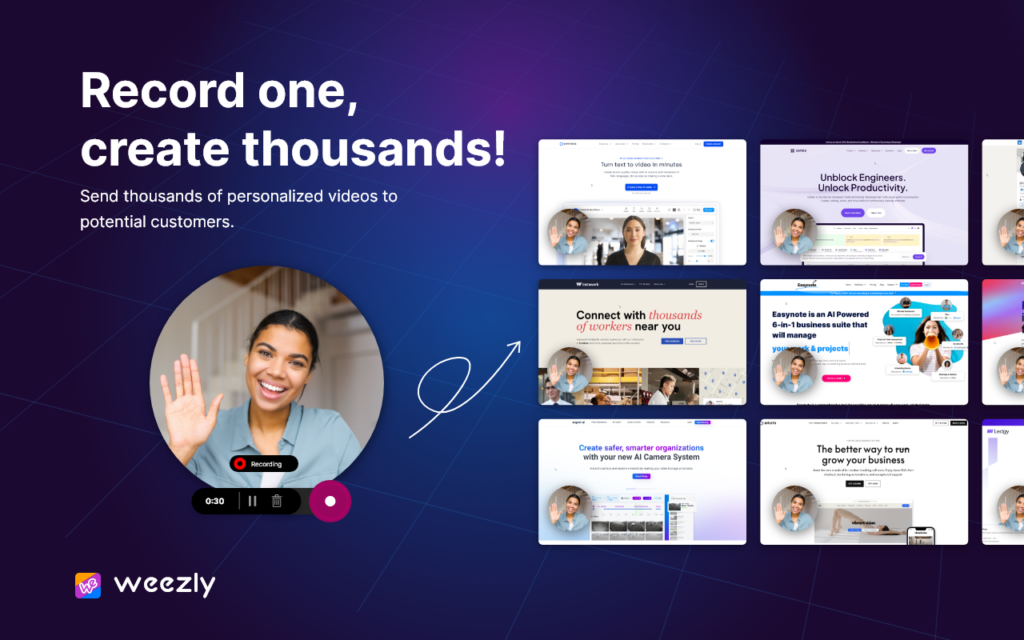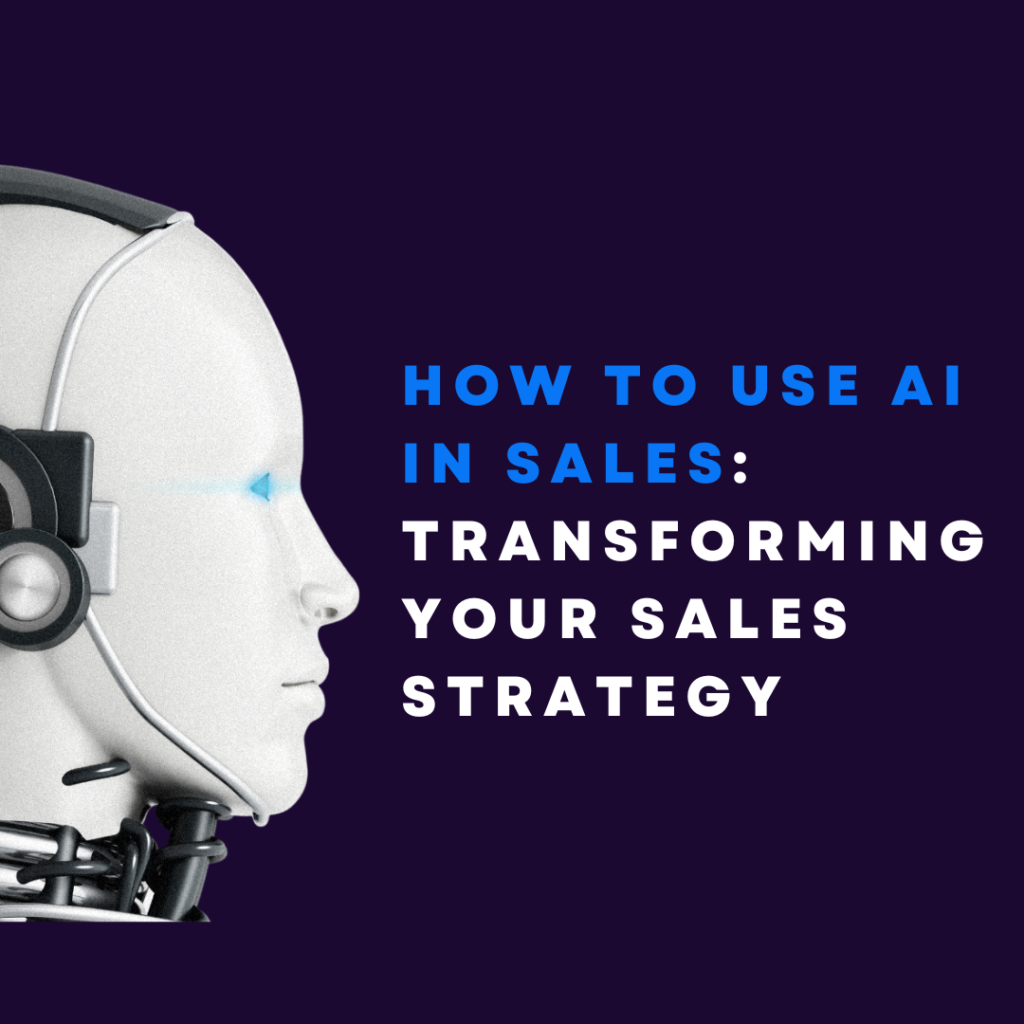In today’s highly competitive market, the incorporation of Artificial Intelligence (AI) into sales processes is no longer optional; it’s a necessity. Sales teams are constantly under pressure to meet targets, build relationships, and stay ahead of the competition. By leveraging AI, businesses can gain a competitive edge, automate mundane tasks, and ultimately drive revenue growth. This blog post will explore how to use AI in sales, from lead generation to customer retention, and provide practical tips on how to effectively implement AI in your sales strategy.

The Role of AI in Modern Sales
Artificial Intelligence has rapidly become a game-changer in the world of sales. Unlike traditional sales methods, AI can analyze vast amounts of data quickly and accurately, allowing sales teams to make informed decisions. Here are some of the key areas where AI is making a significant impact:
- Lead Generation: AI tools can sift through massive datasets to identify potential leads based on specific criteria, reducing the time spent on manual research.
- Sales Forecasting: Predictive analytics powered by AI can forecast sales trends with a high degree of accuracy, helping businesses plan more effectively.
- Customer Segmentation: AI can segment customers based on their behavior, preferences, and buying patterns, allowing for more personalized marketing and sales approaches.
- Sales Automation: From automating follow-up emails to managing CRM systems, AI can handle repetitive tasks, freeing up time for sales teams to focus on more strategic activities.
The Power of Predictive Analytics in Sales
One of the most powerful applications of AI in sales is predictive analytics. By analyzing historical data, AI can predict future outcomes with remarkable accuracy. This capability is invaluable for sales teams, as it allows them to anticipate customer needs, identify high-potential leads, and allocate resources more effectively.
Key Benefits of Predictive Analytics:
- Accurate Sales Forecasting: AI-driven predictive models can forecast sales performance based on historical data, market trends, and customer behavior.
- Enhanced Lead Scoring: By analyzing past interactions and purchase history, AI can assign scores to leads, helping sales teams prioritize their efforts on the most promising prospects.
- Optimized Pricing Strategies: AI can analyze market conditions, competitor pricing, and customer demand to recommend optimal pricing strategies, ensuring competitiveness while maximizing profit margins.
AI-Driven Lead Generation: Turning Prospects into Customers
Lead generation is the lifeblood of any sales operation. Traditionally, generating leads has been a labor-intensive process, requiring significant time and effort. AI, however, is revolutionizing this aspect of sales by automating the process and improving the quality of leads.
How AI Improves Lead Generation:
- Data Mining and Analysis: AI tools can analyze vast amounts of data from multiple sources to identify potential leads that match your target audience. These tools can scour social media, websites, and public records to gather information about prospects, saving sales teams hours of manual research.
- Predictive Lead Scoring: AI can evaluate leads based on their likelihood to convert, allowing sales teams to focus their efforts on high-value prospects.
- Personalized Outreach: AI can craft personalized messages based on the preferences and behavior of leads, increasing the chances of engagement.
Weezly’s AI Sales Video Features for Lead Generation

A great example of AI-driven lead generation is Weezly’s AI sales video features. Weezly uses advanced AI algorithms to create personalized video messages for potential leads. These videos are tailored to the specific needs and preferences of each lead, making them more engaging and effective than generic outreach methods. With Weezly, sales teams can automate the creation of these videos, ensuring a consistent and personalized approach to lead generation.
Automating Sales Processes with AI
Automation is one of the most significant benefits of AI in sales. By automating repetitive tasks, sales teams can focus on more strategic activities, such as building relationships with clients and closing deals. Here are some of the key areas where AI-driven automation can make a difference:
- Email Campaigns: AI can automate the process of sending follow-up emails, ensuring that prospects receive timely and relevant information.
- CRM Management: AI can automatically update CRM systems with new information, such as contact details and interaction history, reducing the risk of human error.
- Task Scheduling: AI can schedule follow-up tasks based on the behavior and engagement of prospects, ensuring that no lead falls through the cracks.
The Benefits of AI-Powered CRM Systems
Customer Relationship Management (CRM) systems are essential tools for managing interactions with customers and prospects. However, maintaining a CRM system can be time-consuming and prone to errors. AI-powered CRM systems can automate many of the tasks associated with CRM management, such as data entry, lead scoring, and customer segmentation.
Key Features of AI-Powered CRM Systems:
- Automatic Data Entry: AI can automatically update CRM records with new information, reducing the time spent on manual data entry.
- Intelligent Lead Scoring: AI can analyze data from multiple sources to assign scores to leads based on their likelihood to convert.
- Customer Segmentation: AI can segment customers based on their behavior, preferences, and purchase history, allowing for more targeted marketing and sales efforts.
Enhancing Customer Experience with AI
In today’s customer-centric market, providing an exceptional customer experience is crucial for success. AI can play a significant role in enhancing the customer experience by personalizing interactions, providing timely support, and anticipating customer needs.
How AI Enhances Customer Experience:
- Personalized Recommendations: AI can analyze customer behavior and preferences to recommend products or services that are most relevant to them.
- Chatbots and Virtual Assistants: AI-powered chatbots can provide instant support to customers, answering common questions and resolving issues in real time.
- Proactive Customer Support: AI can analyze customer data to identify potential issues before they arise, allowing businesses to proactively address them.
Implementing AI Chatbots for Customer Support
One of the most popular applications of AI in customer support is the use of chatbots. AI-powered chatbots can handle a wide range of customer queries, from answering frequently asked questions to processing orders. By automating these tasks, businesses can reduce response times, improve customer satisfaction, and free up human agents to handle more complex issues.
Benefits of AI Chatbots:
- 24/7 Availability: Chatbots can provide support around the clock, ensuring that customers always have access to assistance.
- Instant Responses: AI-powered chatbots can provide instant answers to customer queries, reducing wait times and improving satisfaction.
- Cost-Effective: By automating routine tasks, chatbots can reduce the need for human agents, leading to cost savings.
Integrating AI into Your Sales Strategy
The integration of AI into your sales strategy requires careful planning and execution. Here are some steps to help you get started:
- Identify Areas for Improvement: Start by identifying areas of your sales process that could benefit from AI. This could include lead generation, customer segmentation, sales forecasting, or customer support.
- Choose the Right Tools: There are many AI tools available, so it’s important to choose the ones that best meet your needs. Consider factors such as ease of use, integration with existing systems, and scalability.
- Train Your Team: Ensure that your sales team is trained on how to use the AI tools effectively. This may involve providing training sessions, creating user guides, or working with vendors to ensure a smooth implementation.
- Monitor and Optimize: Once the AI tools are in place, it’s important to monitor their performance and make adjustments as needed. This could involve tweaking algorithms, updating data sources, or adjusting your overall sales strategy.
Measuring the Impact of AI on Sales Performance
To ensure that your AI implementation is successful, it’s important to measure its impact on your sales performance. Here are some key metrics to track:
- Lead Conversion Rate: Measure the percentage of leads that are converted into customers after implementing AI-driven lead generation tools.
- Sales Cycle Length: Track how long it takes to close deals before and after implementing AI to determine if the technology is shortening the sales cycle.
- Customer Satisfaction: Use surveys or customer feedback to gauge how AI-driven initiatives, such as personalized recommendations or chatbots, are affecting customer satisfaction.
- Revenue Growth: Ultimately, the goal of implementing AI in sales is to drive revenue growth. Track your revenue performance over time to determine the impact of AI on your bottom line.
Conclusion: Embracing AI in Sales
The use of AI in sales is no longer a futuristic concept—it’s happening now, and businesses that fail to embrace this technology risk falling behind. By integrating AI into your sales strategy, you can improve efficiency, enhance customer experience, and ultimately drive revenue growth. Whether you’re looking to automate routine tasks, improve lead generation, or provide personalized customer support, AI offers a wealth of opportunities for sales teams.
However, it’s important to remember that AI is a tool, not a replacement for human salespeople. The most successful sales teams will be those that use AI to augment their capabilities, allowing them to focus on building relationships and closing deals. As AI continues to evolve, the potential for its application in sales will only grow, making it an essential component of any modern sales strategy.
For businesses looking to stay competitive in today’s market, now is the time to start exploring how AI can transform your sales operations. By taking a strategic approach to AI implementation, you can unlock new opportunities, drive growth, and ensure your sales team is equipped to succeed in the digital age.
EXPLORE MORE: Mastering Video Sales Training: A Comprehensive Guide







